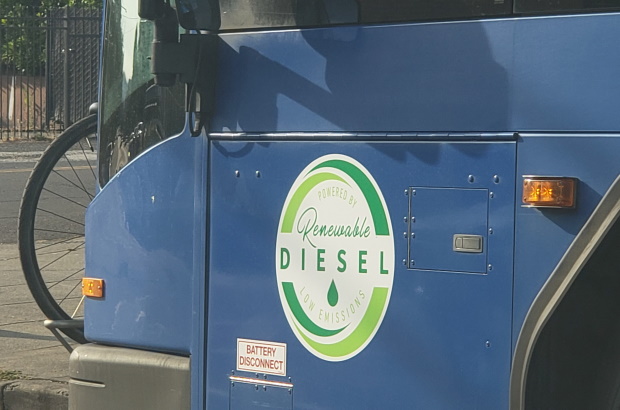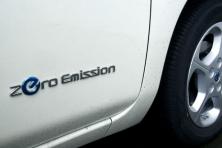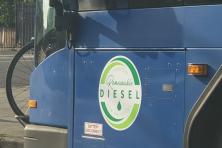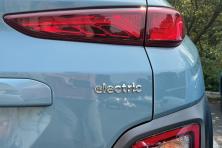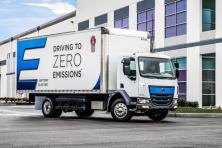Join Climate Solutions in thanking the City of Portland Commissioners
Did you hear the news? Last week, the City of Portland became the first city in the U.S. to phase out the sale of petroleum diesel by 2030. Slashing pollution from our biggest source, the transportation sector represents a big step toward Portland meeting its target of cutting climate pollution in half by 2030. Replacing petroleum diesel with zero emission vehicles and much cleaner-burning fuels like renewable diesel will improve air quality across the region, especially for low-income and BIPOC Portlanders who disproportionately live in and around high pollution zones like freeways due to historic and institutional racist policies and practices.
The unfortunate reality is that diesel engines still make up the overwhelming majority of the trucks and buses on our roads. Oregon’s transportation sector is responsible for nearly 40% of our state’s total climate pollution and much of the air pollution that is harming our lungs and health, especially within environmental justice communities. In fact, Portlanders breathe the dirtiest air in the state and some of the worst in the country, in large part due to diesel pollution.
This is where renewable diesel has a crucial transitional role to play. Renewable diesel and biodiesel have approximately 60-80% lower carbon emissions on a lifecycle basis than petroleum diesel and emit substantially less particulate matter, a major source of harmful air pollution in Portland. When renewable diesel standards, like Portland’s newly passed Renewable Fuel Standard, are paired with electrification and other needed transportation policies to improve transit, biking and walking routes, we can rapidly reduce climate pollution and improve air quality as we transition to a zero emission future and a safer, more equitable transportation system.
Climate Solutions strongly supports policies to get us off fossil fuels as quickly as possible and accelerate electrification in the light, medium- and heavy-duty vehicle markets. We cannot take our foot off the pedal to achieve this zero emission destination, but we also recognize that this transformation takes time. While the electrification of these vehicles and their infrastructure has already begun (with another huge milestone toward zero emissions anticipated on December 19th), we are also excited about opportunities like this policy to have diesel trucks and vehicles still on the road fuel up with a cleaner drop-in fuel immediately. Read here for more about how we see the role of renewable diesel in the broader transition to a zero emission future.
Science says we will need bigger and bolder climate policies year after year to avoid the worst climate impacts. We must do everything we can to ensure pollution reductions happen at the necessary pace and scale. By phasing out petroleum diesel through their RFS, City of Portland has added another arrow to the quiver of meaningful actions that all cities can take to fight climate change, cut air pollution and reduce fossil fuels.
Join Climate Solutions in thanking the City of Portland Commissioners and city staff for taking bold action in unanimously voting to pass the updated Renewable Fuel Standard that will help reduce transportation pollution and help clean the air we breathe!
Join Climate Solutions in thanking the City of Portland Commissioners
